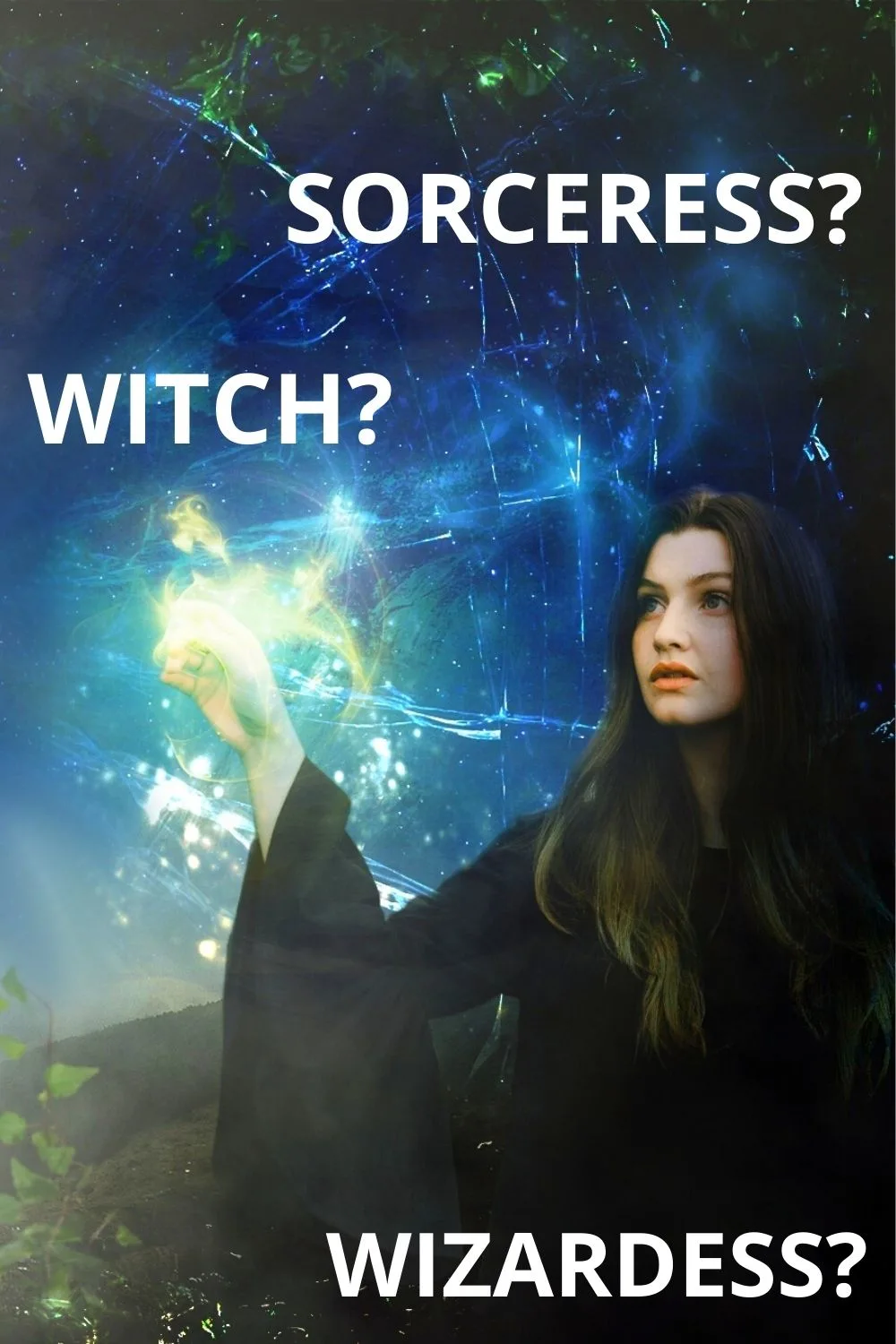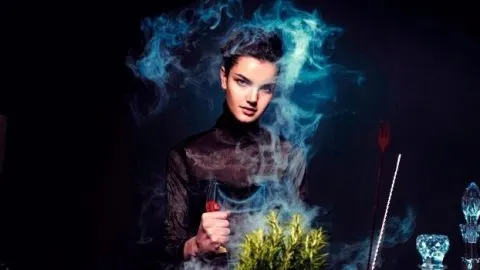Some languages, like Welsh and French, have different feminine and masculine words for professions and other words describing people.
English is inconsistent with this practice, sometimes making it difficult to tell what the right word is to use when referring to someone who does a specific profession or task.
Sometimes, things are made even more complicated by historical usage and popular culture. The word “wizard” is a great example.
What is the word for a female wizard?
Dictionaries provide several options for female wizards. Wizardess and sorceress are the most common, although some dictionaries note that the word “wizard” can also be used to refer to women. In early modern Europe and America, the word “wizard” (or “warlock”) was used to refer to a man who practiced witchcraft, making the female equivalent of a wizard a witch. Fantasy novels, movies, games and other forms of popular culture are likely to follow their own rules, so it’s important to know the context before selecting the correct word.
What is the definition of “wizard”?
Before we look at what to call a female wizard, let’s start with a solid understanding of the word “wizard” itself.
The Oxford English Dictionary (OED), an authoritative source of English word meanings, defines a wizard as “a man who is skilled in occult arts” or “a man who practices witchcraft.”
Other dictionaries give slightly different definitions, but the maleness of the word “wizard” is either assumed or suggested in most of them. Wiktionary, a crowd-sourced dictionary, says that a wizard is “someone, usually male, who uses (or has skill with) magic … and mystical practices.”
The word’s etymology provides interesting reasons for why it is typically male. According to the OED, “Wizard” is derived from Middle English wysard or wyseard, a combination of “wise” and the Old French suffix -ard, which was used as a “masculine formative” to suggest someone who does something to excess. This is perhaps why wizards are typically thought of as men.
However, some dictionaries do not mention gender or sex at all.
Merriam-Webster, for example, defines a wizard as “one skilled in magic,” and the related word sorcerer as “a person who practices sorcery.”
Similarly, a footnote on the OED definition notes that the word can be “occasionally applied to a woman.”
Regardless of these more inclusive definitions, it goes without saying that the stereotypical image of a wizard is that of a man.
Look the word up on Google images and you’ll be treated to dozens of pictures of elderly men with long white beards and pointy hats, many of which are blue and decorated with stars or moons.
So what do you call a female wizard? The answer to this question is complicated and depends on the context in which you ask it. Let’s review some of the most common words.

The wizard as a male witch
The meaning of a “wizard” as someone who casts spells is likely as old as the Middle English word. Historically, the word has also had connotations of someone who consorts with demons for their unearthly powers.
Much like the word “warlock,” the word “wizard” was used . If you need a word to describe a female wizard that would likely be used in a historical setting in either Europe or the United States, then, you should stick to “witch.”
In some cases this might suggest the person has a connection with the Christian Devil, but recently the word has lost that meaning.
Several popular culture series also take the word “witch” as the female equivalent to “wizard.”
In some of these series, including the popular Harry Potter books and movies, the only difference between a witch and wizard is the gender or sex of the character.
In others, such as Terry Pratchett’s well-known Discworld series, witches and wizards practice very different kinds of magic, as well as being distinct by gender and sex.
Terms for female wizards that aren’t tied to a specific context
Wizards and magic users have a long history in the popular imagination, leading to a proliferation of ways to refer to them that don’t draw on the negative historical views held in Europe and the United States.
If you’re just looking for a word that says “female magic user,” but doesn’t connect to historical traditions of witchcraft, try one of the following.
Wizardess
This word is created in the same way as other English words like “actor” and “actress.”
Although it doesn’t have a historical precedent, and isn’t in some dictionaries, this is a good choice if you want a word for female wizard that has an obvious meaning. The “ess” suffix makes it obvious that the word refers to a woman, while the “wizard” is equally clear.
Sorceress
In a similar vein to “wizardess,” the word “sorceress” clearly refers to a female user of magic.
The word “sorcerer,” while not the same as “wizard” in some ways, means essentially the same thing in most cases. This word is more common than “wizardess,” which may make it a better option if you want a word that people will recognize.
In L. Frank Baum’s Oz books, the author switched from referring to one character as “the good witch” in earlier books to calling her a sorceress, because of the negative connotations of witches throughout history.
The word “enchantress” is similar, although it probably isn’t a good comparison to “wizard” as such.
Wizard
As seen in the Merriam-Webster definition, the word “wizard” doesn’t have to refer to a man.
One of the simplest solutions to the problem of what you call a female wizard, then, it just to use the same word. If a wizard can be a man or a woman, then there’s no problem in the first place.
Some fantasy games, such as Dungeons and Dragons, use the word “wizard” in this way, and may differentiate between wizards and sorcerers rather than specifying the gender or sex of the character.
However, this option lacks specificity. If you want to be absolutely clear that you’re talking about a woman who uses magic powers, the word “wizard” might confuse people.
Determining a winner by usage
With so many options, it’s best to pick the one that works best in your situation.
However, it can also be useful to know which word is the most widely used. Using Google Ngrams, we scanned all books from the early 1800s to today.
The chart shows a significantly higher use of the word “witch” than any other choice.
Of course, it’s hard to say if these words were being used in the context of “a female wizard,” as Ngrams merely look for any use of the word.
Indeed, the historical existence of women referred to as witches makes it unlikely all uses of that term are being used in that way.
All the same, “witch” is the clear winner in terms of the highest percentage of usage.

Hey fellow Linguaholics! It’s me, Marcel. I am the proud owner of linguaholic.com. Languages have always been my passion and I have studied Linguistics, Computational Linguistics and Sinology at the University of Zurich. It is my utmost pleasure to share with all of you guys what I know about languages and linguistics in general.

